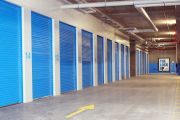
Five things to remember when signing an office lease
Article updated 28 March, 2023
Office leases are quite different from residential property leases. These five tips will ensure you don’t sign up for any unwanted surprises.
It’s an exciting time when a business needs to source new premises to accommodate growth in its operations and workforce. However, be mindful when signing a lease that it meets the needs of your business now and in the longer term so that the move remains a happy one.
To help you embark on this journey, Glen Peterson, director of LJ Hooker Commercial Parramatta in Sydney’s west, shares his top five tips for signing an office lease:
1. Don’t confuse a commercial lease with a residential one
You may think that a lease is a lease, but commercial property leases are remarkably different and more complex than their residential counterparts.
“The principles are the same but the nuances are quite different,” explains Peterson. “There’s still an owner and a tenant, but the nuances are enough to be much more risky in a commercial lease than a residential lease.”
2. Seek legal advice
“There’s less consumer protection when it comes to a commercial lease,” says Peterson. “In that regard, it’s prudent to have someone representing you who understands commercial leases and can advise you. We would always recommend businesses seek legal advice on a commercial lease.
“Consumers are protected by the law to a great extent, however, the law takes the view that businesses are reasonably au fait with commercial terms.”
3. Market intelligence is an investment
Just as you wouldn’t buy a house without doing your research, Peterson says it’s important to research the local market before signing a commercial lease.
“Do your comparative homework; you can ask the estate agent about comparative properties and what they have leased for and do some research online to give you an idea of market intelligence.”
That way, you will have a good idea of current market rents and conditions, and be in a stronger place to negotiate for a better deal.
4. Everything is negotiable
In comparison to a residential lease – where virtually everything is pre-determined by law – Peterson says that for commercial leases almost everything is negotiable.
“Unless it’s a retail lease, all of the terms and conditions are negotiable; rents and rental reviews, bond and guarantees, lease terms and so on.”
“These should be discussed in the offer that’s made. Make what I like to call a holistic offer; not just ‘I’ll pay this much,’ but include all these points and any other important considerations for you as a tenant.”
5. Know the difference between net and gross rental
“It’s important to know if the property is being offered to the market as a net rental or gross rental,” says Peterson.
“Net means that in addition to the rent, outgoings are also payable, and you’ll then need to find out what these outgoings are as they will impact your final costs. Gross means they are already included.
“Whether it’s net or gross varies on the type of property. For example, retail properties are predominantly gross, commercial can vary, and industrial is predominantly net. Smaller properties can often be gross, but it does vary.”
Far from being straightforward documents, commercial leases are an evolving beast. As such, familiarise yourself beforehand, seek specialist advice and be sure to negotiate your company a preferable leasing agreement.
Find an office property to lease at CommercialRealEstate.com.au.









